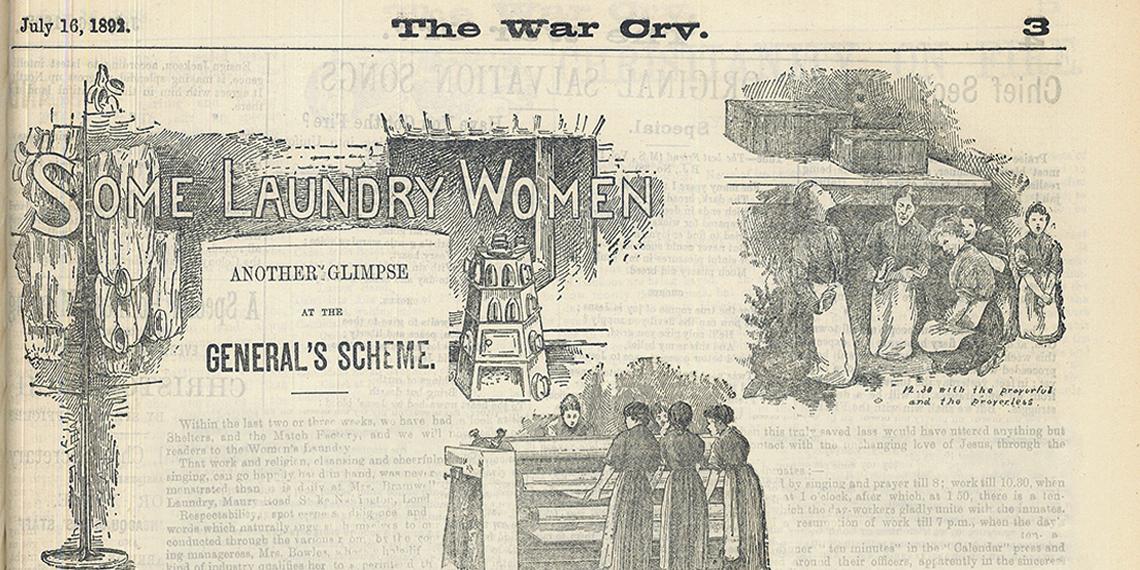Our calling today

The Salvation Army began its campaign against ‘sweated labour’ in the 1890s, on the back of co-founder General William Booth’s best-selling book In Darkest England and the Way Out.
The best known of the ‘labour colonies’ set up by The Salvation Army was the famous match factory, which changed the industry by using an alternative to the brutal, crippling phosphorus matches, and offering fair wages.
What is less well known is that the fledging Army set up several such ‘labour colonies’. By 1893, the Army in the UK was providing work for 2700 people, in such industries as text-making, needlework, book-binding, and knitting.
War Cry in 1892, reported on ‘Mrs Bramwell Booth’s Steam Laundry’, where ‘religion, cleansing and cheerfulness, service and singing, can go happily hand in hand’. It employed 24 ‘poor women, widowed and destitute’.
The women were offered shelter and shorter working hours—only clocking on from 8.30am until 7pm! One ‘lass’ said the previous Easter had been her first one sober. ‘It was very beautiful to hear [this] rescued lass lead off in prayer,’ reported War Cry.
Founders’ Day this weekend provides us with a moment to pause from the tireless work that continues to this day. It is a time to reflect on our past, in order to better understand who we are today—and who we hope to be in the future.
Innovation is still the true heart of The Salvation Army. This year alone, we have launched The Good Shop, which is taking on the debt industry, and partnered with KiwiBuy to address the housing crisis.
But aside from our ‘professional’ services, each of us who call ourselves Salvationists are in the business of grappling with injustice, as part of the gospel we preach. We cannot be The Salvation Army without a bias towards the ‘destitute’—if only we have eyes to see them. We must continue to be an open door to those often rejected by other church traditions.
‘Soup, soap and salvation’ has been our enduring motto. To be The Salvation Army and not be concerned with spiritual matters, is as much an oxymoron as any failure to respond to social need. Faith and deeds walk step-by-step, as William Booth famously said.
Founders’ Day is also an opportunity to ask ourselves some brave questions: What needs to change? What must remain the same? What is God requiring of us in these days? What is God asking of me?
The world of 2019 is vastly different to the one The Salvation Army was born into 154 years ago in London’s East End in terms of how we do mission. But the why remains the same. The call to ‘care for people, transform lives and reform society’ is as urgent as ever it was, and the Spirit behind that call continues to empower.
As our mission statement says, ‘Everything [The Salvation Army] does is as an offering to the glory of God and for the worship and adoration of God’s name’.
As much as we honour our founders, we do not follow the Booths—we follow Jesus. What is the Spirit of the Living God calling us to in our day?
By Jules Badger and Ingrid Barratt (c) 'War Cry' magazine, 29 June 2019, p3 You can read 'War Cry' at your nearest Salvation Army church or centre, or subscribe through Salvationist Resources.
